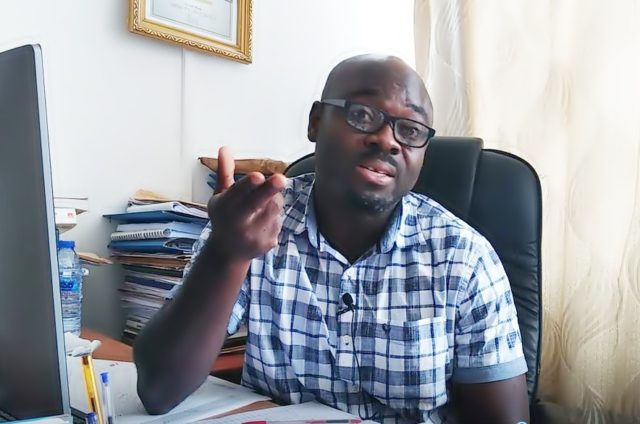Some experts are warning of challenging times for the Ghanaian economy because of increasing interest costs of its international bonds.
According to them, this will affect government finances and liquidity in the economy, thus depriving businesses adequate funds to expand and grow.
Ghana’s dollar bonds are the worst performers this month in a Bloomberg index tracking emerging-market hard-currency debt, with a decline of 5.8%. The 2025 yield jumped 153 basis points on Monday, 18th October, 2021, the most in a day on record since the debt began to trade in April 2021.
This will compel investors holding the country’s bonds to demand high premiums or interest rates.
Subsequently, if the situation persists, Ghana may have no option than to return to the International Monetary Fund (IMF) for financial support. Ghana’s debt has reached alarming levels of ¢335 billion as of the end of July 2021.
Speaking to Joy Business, Finance Lecturer at the University of Ghana Business School, Professor Lord Mensah said “it’s going to have impact on our economy. I mean bonds that we’ve floated because obviously once the premium yield goes up, we should expect that every investor would require higher rate as far as our bonds are concerned.”
“We should expect higher rates on any issue [new bonds or rollover]. It will affect the possible floatation that we’re going to do in future”, he added.
To him, “businesses will be affected in a way, because once interest rates go up in a certain environment, it increases cost of operations. Even the banks struggles to raise funding.”
He added that if government is struggling to raise funds, then obviously it would be borrowing, adding “when the government borrows in excessive manner, it stifles businesses from accessing funds. So, obviously it’s going to affect businesses locally.”
Government to spend ¢36bn on interest payment
Government set aside about ¢36 billion as interest payment on existing and fresh loans that it will be servicing this year.
But following this development of investors demanding for high interest rate, this amount could be go up further.
Interest Payments is now the biggest spending item on the 2021 budget, overtaking compensation which had traditionally led the spending list.
Latest Stories
-
Rising star Naa Koryoo, the best bet for the Awutu Senya East constituency
6 mins -
National Cathedral scandal: There is a “major deficit among the clergy” – Edem Senanu
21 mins -
ADB MD satisfied with progress of Northshore Apparel Ghana Project
30 mins -
GNPC yet to establish reserve fund to finance future operations
31 mins -
Meet Stonebwoy, Sister Deborah, and Anita Akua at Decathlon Accra Mall grand opening on Nov 27
41 mins -
Abedi Pele calls for Ghana football restructuring following AFCON setback
1 hour -
Bawumia is God’s gift to Ghana; he is incomparable – Rebecca Akufo-Addo
1 hour -
CPP government will enforce law in tackling air pollution – CPP
1 hour -
CHRAJ erred and let Ghana down in Kusi Boateng matter – Ablakwa
2 hours -
Breaking the 8 Will Break Ghana: Why you shouldn’t vote for Bawumia
4 hours -
University lecturers praise Free SHS policy as visionary and transformative
5 hours -
Bond market: Turnover soars 13.14 percentage points on offshore investor boost
5 hours -
Insurance penetration rate in Ghana to remain around 1.0% – Deloitte
5 hours -
Cedi’s recovery continues; one cedi going for GH¢16.70
5 hours -
‘Stop the lies’ – Akufo-Addo challenges Mahama over 24-hour economy promise
6 hours

